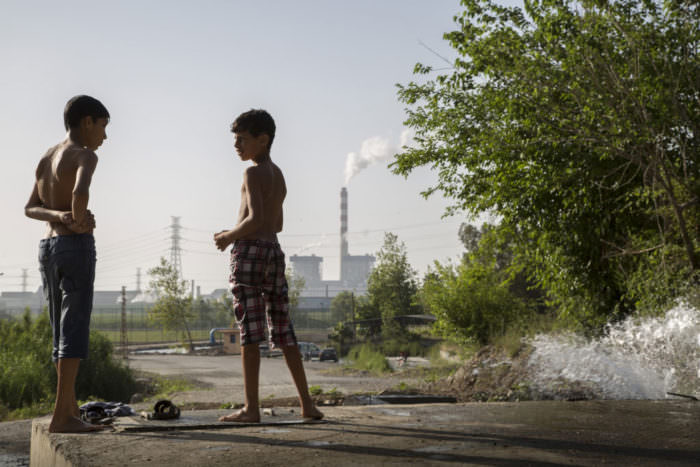Soma: famous for grapes and mine disasters
26 September, 2017
Yirca is a small village in the Soma district of Manisa. Manisa is famous for grapes, Soma is famous for dirty lignite. Both are suffering because of coal.
In recent years, 301 miners lost their lives in a mine explosion in Soma, while in 2015 global climate change-related extreme weather saw grape farmers suffer substantial crop losses.
Soma’s lignite fulfills 10% of Turkey’s energy needs. It is currently home to one coal power plant, and a second is planned. Despite court cases and an environmental impact assessment being underway, Kolin, the company building the plant, directed workers to rip out 6,666 olive trees owned by Yirca villagers.
Greenpeace along with the Yirca villagers mobilised hundreds of people from all around Turkey to come and resist the clearing and protect the olive groves. The workers quickly turned violent, which in turn hardened the villager’s resistance. This continued for one month, until the villagers won and the land granted to Kolin was given back to the community.
The villagers of Yirca have started to replant their olive trees for their children and grandchildren, but Kolin has found another village, Kayrakalti, in Soma to push forward with its coal plans. It organised an environmental impact assessment (EIA), and met with the villagers of Kayrakalti to get their input on its plan.
“It was more of a recruitment meeting than a discussion of the environmental impact of the plant,” said Resit Elcin, Greenpeace Turkey campaigner. “Nothing was discussed about pollution, and while they did discuss how many local people they would employ, the number was quite inflated (2500, compared to the 1500 mentioned in the report).”
“I didn’t get a chance to speak about this. The moment I got the microphone, the company workers and villagers with employment hopes physically pushed me out of the meeting hall.”
Turkey has around 70 new coal plants planned, and those that are going ahead so far are often pushed through at the expense of local communities, locking them into long term reliance on the plants for work, while destroying their lands and damaging their health.
The benefits of jobs in clean energy initiatives as opposed to coal cannot be understated for these communities, but a just transition model must be developed at local, regional and national levels.

